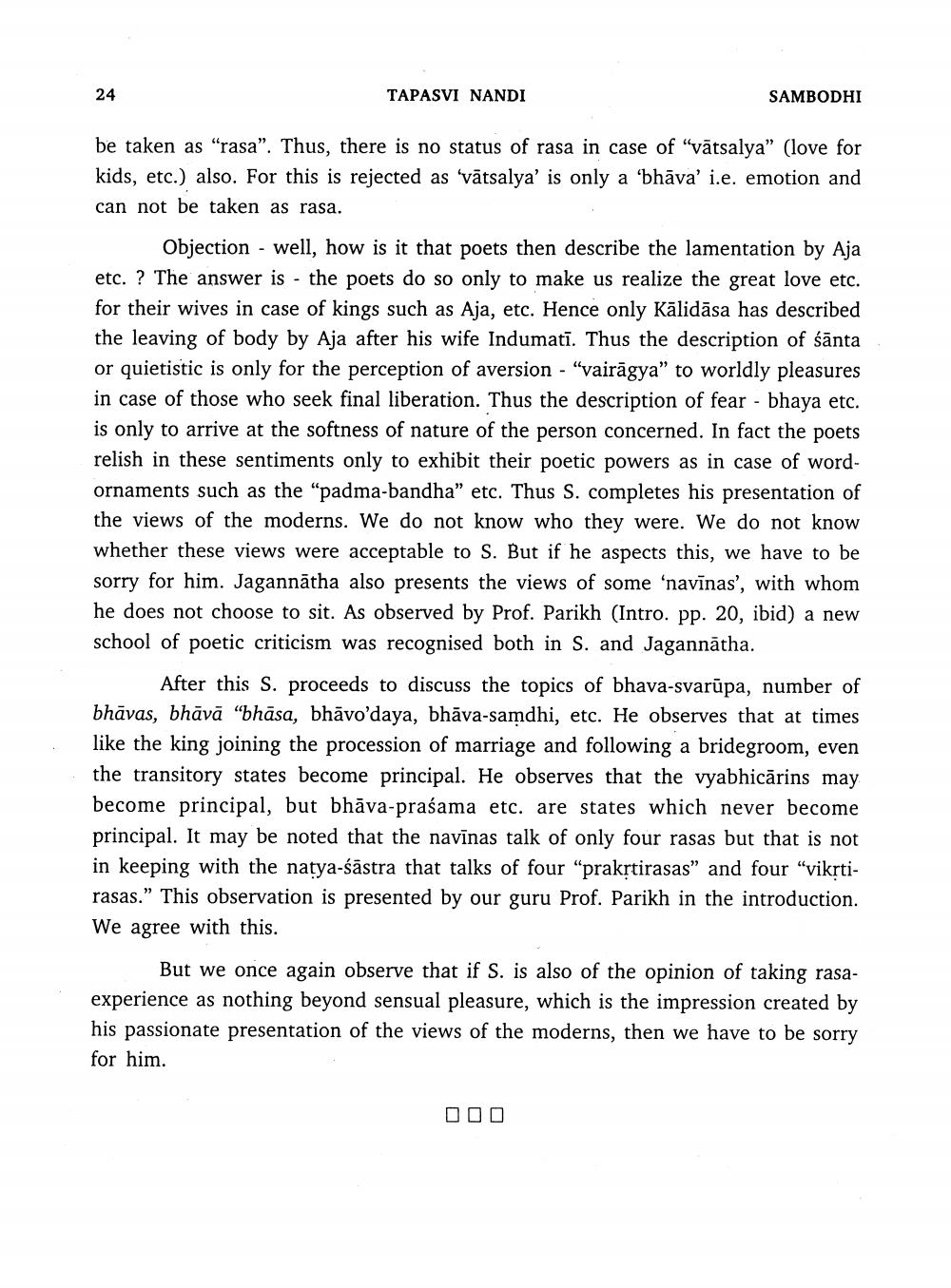________________
TAPASVI NANDI
SAMBODHI
be taken as “rasa”. Thus, there is no status of rasa in case of "vātsalya" (love for kids, etc.) also. For this is rejected as 'vātsalya' is only a 'bhāva' i.e. emotion and can not be taken as rasa.
Objection - well, how is it that poets then describe the lamentation by Aja etc.? The answer is - the poets do so only to make us realize the great love etc. for their wives in case of kings such as Aja, etc. Hence only Kālidāsa has described the leaving of body by Aja after his wife Indumatī. Thus the description of śānta or quietistic is only for the perception of aversion - "vairāgya” to worldly pleasures in case of those who seek final liberation. Thus the description of fear - bhaya etc. is only to arrive at the softness of nature of the person concerned. In fact the poets relish in these sentiments only to exhibit their poetic powers as in case of wordornaments such as the “padma-bandha” etc. Thus S. completes his presentation of the views of the moderns. We do not know who they were. We do not know whether these views were acceptable to S. But if he aspects this, we have to be sorry for him. Jagannātha also presents the views of some 'navīnas', with whom he does not choose to sit. As observed by Prof. Parikh (Intro. pp. 20, ibid) a new school of poetic criticism was recognised both in S. and Jagannātha.
After this S. proceeds to discuss the topics of bhava-svarūpa, number of bhāvas, bhāvā "bhāsa, bhāvo'daya, bhāva-samdhi, etc. He observes that at times like the king joining the procession of marriage and following a bridegroom, even the transitory states become principal. He observes that the vyabhicārins may become principal, but bhāva-praśama etc. are states which never become principal. It may be noted that the navīnas talk of only four rasas but that is not in keeping with the natya-śāstra that talks of four "prakrtirasas" and four "vikrtirasas." This observation is presented by our guru Prof. Parikh in the introduction. We agree with this.
But we once again observe that if S. is also of the opinion of taking rasaexperience as nothing beyond sensual pleasure, which is the impression created by his passionate presentation of the views of the moderns, then we have to be sorry for him.
000




